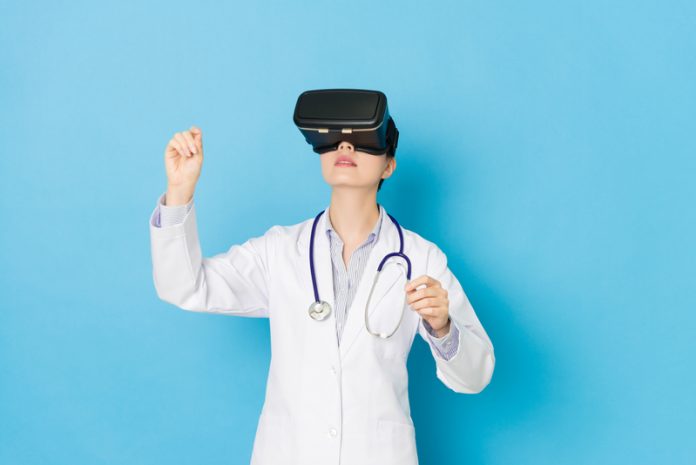The Rt Hon Matt Hancock MP’s vision for an NHS that uses technology to support predictive, preventative and personalised care is explored here
The Rt Hon Matt Hancock MP has a vision for an NHS that uses technology to support predictive, preventative and personalised care is explored here. Before we look at that however let’s explore some of his career background – we know that he was appointed as the UK’s Secretary of State for Health and Social Care during July 2018. Prior to this, he was Secretary of State for Digital, Culture, Media and Sport and Minister of State for Digital. Elected as MP for West Suffolk in 2010, Matt then was a backbencher on the Public Accounts Committee and the Standards & Privileges Committee. Since entering government in 2019, Matt has held a number of important ministerial roles.
Before he entered the world of politics, Matt worked as part of his family business and also served as Chief of Staff to the Shadow Chancellor of the Exchequer and an economist at the Bank of England. In terms of his educational background, we know that he holds degrees from Cambridge and Oxford Universities. Married to Martha with three young children, it’s interesting to note that Matt is the first MP in modern times to win a horse race.
In his current role as Secretary of State, Matt is responsible for the work of the Department of Health and Social Care, including oversight of social care policy, as well as overall financial control and oversight of NHS delivery and performance. 1 This article looks at one aspect of his remit that concerns the use of technology in healthcare. By way of background, we know that the Department of Health and Social Care wants to “lead the world in the use of data and technology to prevent illness – not just treat it” through the NHS Long Term Plan, according to Baroness Blackwood, Parliamentary Under Secretary of State (Lords). 2
Matt Hancock bans pagers from the NHS
A significant piece of news came in February 2019, when we find out that Matt Hancock orders the removal of pagers for non-emergency communications to take effect before the close of 2021. All hospitals must, therefore, have plans and infrastructure ready by September 2020 to ensure that this is possible. Staff are encouraged to use mobile phones and apps, for example, because such modern forms of technology are a fantastic way to deliver two-way communications at a lower cost.
It’s interesting to note that no less than one in 10 of the world’s pagers used by the NHS. The annual cost for the NHS when it comes to using pagers is £6.6 million and in addition, the majority of phone companies have phased out support for these devices. As pagers only enable one-way communication, they are not exactly the most efficient way for NHS staff to communicate. Two-way communication means that no time is wasted and enables greater efficiency, for example, when it comes to dealing with urgent tasks. Of course, mobile phones and apps do support the sharing of information between staff, something that pagers cannot.
Having said this, some NHS trusts will be permitted to keep some pagers for use in emergency situations only, such when Wi-Fi fails or when no other form of communication is possible. To prepare for this massive change in the NHS, a pilot project took place at West Suffolk NHS Foundation Trust (WSFT) in 2017, which made use of a messaging and calling system, Medic Bleep which is like Whatsapp and has enhanced data protection.
Earlier in this article, I mentioned the NHS Long Term Plan and it’s true to say that this significant move is the next step towards a fully digitised NHS. 3 We know that the policy paper, The future of healthcare: our vision for digital, data and technology in health and care details what is required so that the UK’s health and care system can make the best use of technology to support predictive, preventative and personalised care.
Looking ahead, IT systems and digital services used by the NHS will need to meet a clear set of open standards in the near future to ensure that staff can communicate across organisational boundaries. The ability for such systems and services to be continuously upgraded is also important and any system that does not fit such criteria will be phased out. Let’s leave the last word to Health and Social Care Secretary Matt Hancock, who explains his views on the need for NHS staff to have the right technology at their disposal so they can carry out their duties in high-pressure environments.
“Every day, our wonderful NHS staff work incredibly hard in what can be challenging and high-pressured environments. The last thing they need are the frustrations of having to deal with outdated technology – they deserve the very best equipment to help them do their jobs.
“We have to get the basics right, like having computers that work and getting rid of archaic technology like pagers and fax machines. Email and mobile phones are a more secure, quicker and cheaper way to communicate which allow doctors and nurses to spend more time caring for patients rather than having to work around outdated kit.
“We want to build a health and care service which is fully able to harness the huge potential of technology. This will save lives, support hard-working staff and deliver the cutting-edge care set out by our Long Term Plan for the NHS.”
References
1 https://www.gov.uk/government/people/matthew-hancock
2 https://www.gov.uk/government/news/health-minister-nhs-mustlead-the-world-in-genomic-healthcare
3 https://www.gov.uk/government/news/health-and-social-care-secretary-bans-pagers-from-the-nhs
Open Access Government











